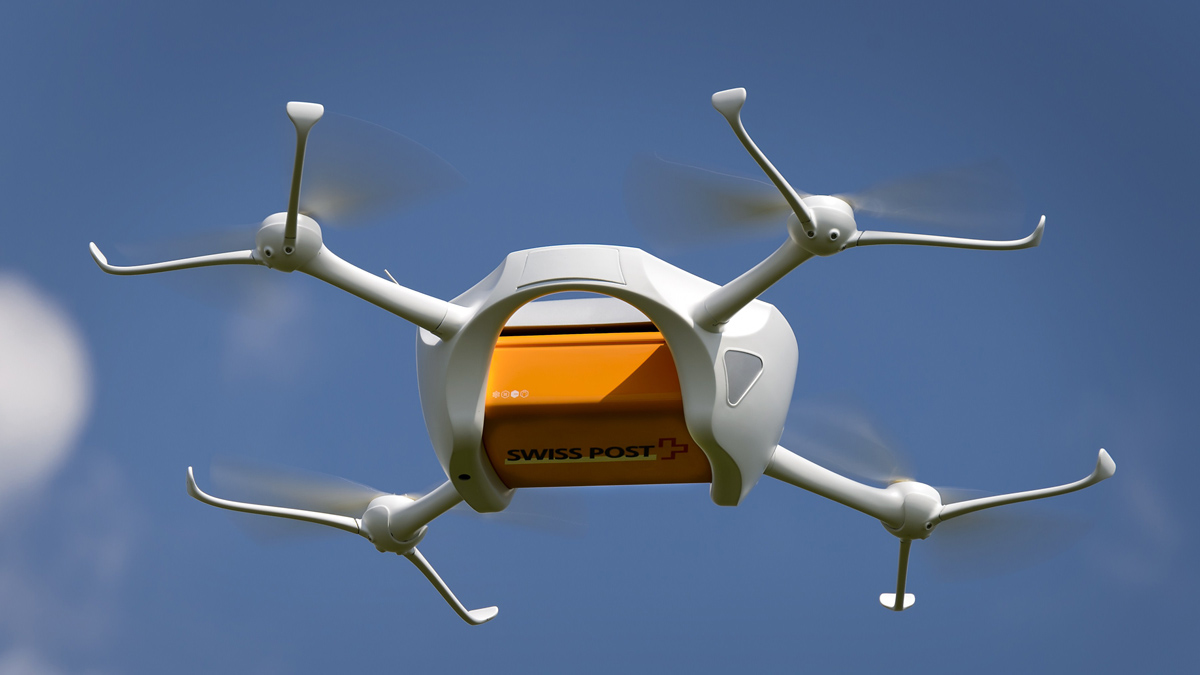Islamic State killer drones prompt fears of future attacks abroad
Experts divided on how 'weapons of war' might be used outside Iraq and Syria

A free daily email with the biggest news stories of the day – and the best features from TheWeek.com
You are now subscribed
Your newsletter sign-up was successful
Islamic State militants are using killer drones to carry out air strikes in Iraq, prompting concerns they might one day use the machines as weapons to target other parts of the world, including Europe.
IS claims to have launched 37 drone strikes in northern Iraq since 3 February, ten of which have been confirmed by media outlets in the country, reports the Washington Times.
Most were in east Mosul, while others were reported at least 100 miles south of the city.
The Week
Escape your echo chamber. Get the facts behind the news, plus analysis from multiple perspectives.

Sign up for The Week's Free Newsletters
From our morning news briefing to a weekly Good News Newsletter, get the best of The Week delivered directly to your inbox.
From our morning news briefing to a weekly Good News Newsletter, get the best of The Week delivered directly to your inbox.
At the moment, the drones have a two-mile range and can carry around a pound of explosives, says the newspaper.
However, former Jordanian Air Force general Mamoun Abu Nowar, an Iraq war analyst, says they could one day cause panic in places such as London, Paris or Washington, DC.
"Drones are portable, easy to buy from commercial stores and very attractive to terrorists," he said. "It is likely that we will see in the future use of these drones as weapons on crowds or high-value targets.
"We have seen them land near the White House and we have seen them taking close pictures of important places around the world. The Federal Aviation Agency cannot stop drones and their operators if they intend to be use them against crowds armed with a chemical agent. They will terrify people."
A free daily email with the biggest news stories of the day – and the best features from TheWeek.com
Consumer drones have become "weapons of war", wrote David Hambling for the BBC last year, claiming IS had been using the off-the-shelf devices for two years to film propaganda videos, scout targets on surveillance missions and guide armoured truck bombs.
"Now such drones may be more than spies. IS have started turning cheap drones into lethal guided missiles by fitting them with explosive charges," he said.
Colonel John Dorrian, chief spokesman for the Combined Joint Task Force, told the Washington Times he was "not surprised" by the use of drones as it was "one of the few remaining courses of action available to the enemy".
However, he added that at the moment, drone attacks "have little to no strategic impact, but some propaganda value".
Ahmet Yayla, former head of Turkey's police counter-terrorism unit, also believes the potential for drone attacks outside the conflict zone is still relatively far off.
He said: "Killer drones are not likely to be used in countries outside Syria and Iraq for the near term.
"Another problem for Isis in Europe is that it is difficult to acquire hand grenades and munitions. For terrorist agents to purchase these explosives means they would risk losing their cover."
-
 The Olympic timekeepers keeping the Games on track
The Olympic timekeepers keeping the Games on trackUnder the Radar Swiss watchmaking giant Omega has been at the finish line of every Olympic Games for nearly 100 years
-
 Will increasing tensions with Iran boil over into war?
Will increasing tensions with Iran boil over into war?Today’s Big Question President Donald Trump has recently been threatening the country
-
 Corruption: The spy sheikh and the president
Corruption: The spy sheikh and the presidentFeature Trump is at the center of another scandal
-
 Epstein files topple law CEO, roil UK government
Epstein files topple law CEO, roil UK governmentSpeed Read Peter Mandelson, Britain’s former ambassador to the US, is caught up in the scandal
-
 Iran and US prepare to meet after skirmishes
Iran and US prepare to meet after skirmishesSpeed Read The incident comes amid heightened tensions in the Middle East
-
 Israel retrieves final hostage’s body from Gaza
Israel retrieves final hostage’s body from GazaSpeed Read The 24-year-old police officer was killed during the initial Hamas attack
-
 China’s Xi targets top general in growing purge
China’s Xi targets top general in growing purgeSpeed Read Zhang Youxia is being investigated over ‘grave violations’ of the law
-
 Panama and Canada are negotiating over a crucial copper mine
Panama and Canada are negotiating over a crucial copper mineIn the Spotlight Panama is set to make a final decision on the mine this summer
-
 Why Greenland’s natural resources are nearly impossible to mine
Why Greenland’s natural resources are nearly impossible to mineThe Explainer The country’s natural landscape makes the task extremely difficult
-
 Iran cuts internet as protests escalate
Iran cuts internet as protests escalateSpeed Reada Government buildings across the country have been set on fire
-
 US nabs ‘shadow’ tanker claimed by Russia
US nabs ‘shadow’ tanker claimed by RussiaSpeed Read The ship was one of two vessels seized by the US military